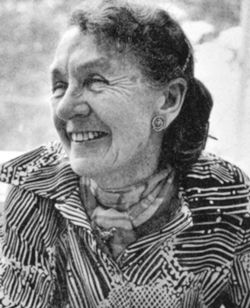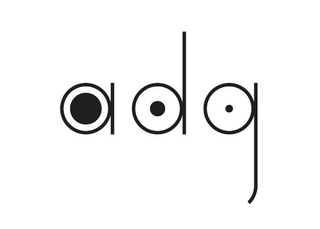
Collaboration is the process of two or more people, entities or organizations working together to complete a task or achieve a goal. Collaboration is similar to cooperation. Most collaboration requires leadership, although the form of leadership can be social within a decentralized and egalitarian group. Teams that work collaboratively often access greater resources, recognition and rewards when facing competition for finite resources.
Contact improvisation is a form of improvised partner dancing that has been developing internationally since 1972. It involves the exploration of one's body in relationship to others by using the fundamentals of sharing weight, touch, and movement awareness. It has evolved into a broad global community of social dancing around "jams" characterized by their welcoming attitude towards newcomers to dance, as well as seasoned practitioners, and is often found overlapping with ecstatic dance communities.

The Royal Academy of Dance (RAD) is a UK-based examination board specialising in dance education and training, with an emphasis on classical ballet. The RAD was founded in London, England in 1920 as the Association of Teachers of Operatic Dancing, and was granted a Royal Charter in 1935. Queen Elizabeth II was patron of the RAD and Darcey Bussell was elected to serve as president in 2012, succeeding Antoinette Sibley who served for 21 years.
Founded in 1920, The National Council of Teachers of Mathematics (NCTM) is a professional organization for schoolteachers of mathematics in the United States. One of its goals is to improve the standards of mathematics in education. NCTM holds annual national and regional conferences for teachers and publishes five journals.
The National Association for the Education of Young Children (NAEYC) is a large nonprofit association in the United States representing early childhood education teachers, para-educators, center directors, trainers, college educators, families of young children, policy makers, and advocates. NAEYC is focused on improving the well-being of young children, with particular emphasis on the quality of educational and developmental services for children from birth through age 8.
The American String Teachers Association (ASTA) is a professional organization for bowed string music teachers based in the United States. It is the largest organization in the U.S. for string teachers. ASTA serves teachers and students in all areas of stringed instruments from kindergarten to the collegiate level, private teachers, performers, institutions of higher learning and business partners serving all instruments, accessories, sheet music and more for the teachers, students and players of stringed instruments.
Selma Jeanne Cohen was a historian, teacher, author, and editor who devoted her career to advocating dance as an art worthy of the same scholarly respect traditionally awarded to painting, music, and literature. She was the founding editor of the six-volume International Encyclopedia of Dance, completed in 1998.
Congress on Research in Dance (CORD) was a professional organization for dance historians in the United States and worldwide that was founded in 1964 and then merged in 2017 with the Society of Dance History Scholars to form the Dance Studies Association (DSA).
The Society for Ethnomusicology is, with the International Council for Traditional Music and the British Forum for Ethnomusicology, one of three major international associations for ethnomusicology. Its mission is "to promote the research, study, and performance of music in all historical periods and cultural contexts."
The Society of Dance History Scholars (SDHS) was a professional organization for dance historians in the United States and internationally. Founded in 1978, it became a non-profit in 1983. SDHS became a member of the American Council of Learned Societies in 1996, hosted an annual conference, published conference proceedings and a book series, and presented awards to new and established scholars. In 2017 it merged with the Congress on Research in Dance to form the Dance Studies Association (DSA).
The American Society for Horticultural Science (ASHS) is the world’s premier professional society for horticultural science. Founded in 1903, the mission of ASHS is to promote and encourage national and international interest in scientific research and education in horticulture in all its branches. The more than 2500 ASHS members in all 50 states and 60 countries around the world fulfill this mission by sharing the results of their research, teaching, extension, and community engagement activities with their colleagues and humankind the world over.
Founded in 1981, the American Journalism Historians Association (AJHA) seeks to advance education and research in mass communication history. Through its annual meeting, regional conferences, committees, awards, speakers and publications, members work to raise historical standards and ensure that all scholars and students recognize the vast importance of media history and apply this knowledge to the advancement of society.
Bill Evans is a choreographer, performer, teacher, administrator, writer and movement analyst. More than 250 of Evans' works have been performed by professional and pre-professional ballet, modern dance and tap dance companies throughout the United States, including his own Bill Evans Dance Company, Repertory Dance Theatre, Concert Dance Company of Boston, Ballet West, Ririe-Woodbury Dance Company, Ruth Page Chicago Ballet, Pacific Northwest Ballet, North Carolina Dance Theater, Stars of American Ballet at Jacob's Pillow, Chicago Tap Theatre, Rochester City Ballet, FuturPointe Dance and many other companies. He has also created works for companies in Canada, Mexico and New Zealand.

Bessie Schonberg was a highly influential dancer, choreographer and teacher of the 20th century. She was at the center of contemporary modern dance from her beginning at Bennington College up until her death in 1997. Her career spanned sixty-five years and she helped mold a new generation of modern dancers including Lucinda Childs, Elizabeth Keen, Meredith Monk and Carolyn Adams (dancer).
Capturing a sense of the life and work of Bessie Schonberg is possible if one evokes the image of a prism, a multi-face crystalline object which cannot be perceived in its entirety, but can be appreciated and understood by catching glimpses of light from its different sides.

Museum education is a specialized field devoted to developing and strengthening the education role of informal education spaces and institutions such as museums.
TESOL Quarterly is a quarterly peer-reviewed academic journal published by Wiley-Blackwell on behalf of TESOL International Association. It covers English language teaching and learning, standard English as a second dialect, including articles on the psychology and sociology of language learning and teaching, professional preparation, curriculum development, and testing and evaluation. The editors-in-chief are Charlene Polio and Peter De Costa, both at Michigan State University. TESOL also publishes TESOL Journal.
The Centre for Air Power Studies (CAPS) is a think tank analysing issues related to national security, defence, and aerospace issues in the evolving strategic and international security environment. It was established as a research think tank on 15 September 2001, under an independent, non-profit, non-governmental trust registered in New Delhi titled "Forum for National Security Studies", officially registered under the existing regulations in New Delhi U/S 12 A of the IT Act in April 2002 and took over responsibilities for governing as the Centre for Air Power Studies (CAPS).

The Australian Directors' Guild (ADG) is an industry guild representing the interests of film, television, commercials and digital media directors, including documentary makers and animators, throughout Australia. With its headquarters in Sydney, the ADG has branches in New South Wales, Queensland, South Australia, Victoria and Western Australia. As of 2022 the president of ADG is Rowan Woods.
NASIG is an independent professional association of librarians and academic publishing professionals, working to advance and transform the management of information resources in all formats and business models, with an emphasis on scholarly communications, serials and electronic resources. Founded in 1985, NASIG is registered in the state of New York as a 501(c)(3) non-profit organization.

The Society for the Teaching of Psychology (STP) is Division 2 of the American Psychological Association. It is an academic society that promotes effective pedagogy while providing supports for teachers of psychology at all levels. Although it is one of the divisions of the American Psychological Association, it does not require its members to join the APA. The STP provides access to peer-reviewed teaching resources, such as course syllabi and e-books, free of charge to the general public through its website. Some sections of the website require STP membership to gain access.






